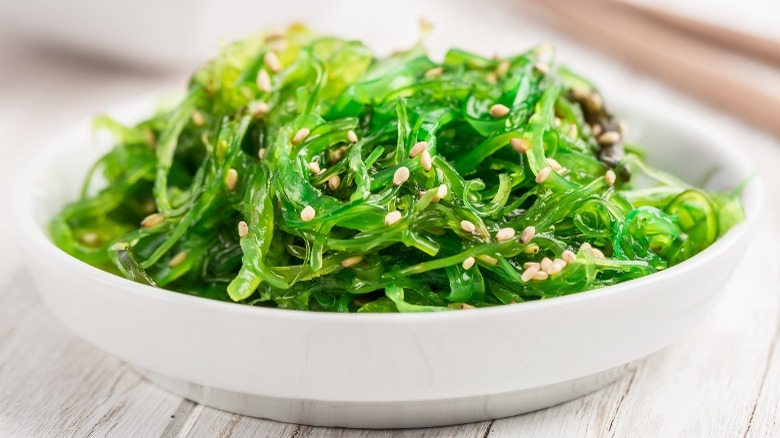Are You Getting Enough Omega-3 On A Plant Based Diet?
If you are someone choosing to stay away from meat, you're not alone. A 2020 poll revealed that close to 60% of Americans began eating more plant-based food that year. Close to 40% of those polled reported that they specifically made the shift to reduce their consumption of animal-based products (via Plant Based News).
However, one reason animal products such as red meat, fish, and eggs are typically parts of a well-balanced diet is due to their important vitamins and nutrients — especially in the case of seafood and essential fatty acids, such as omega-3. According to the National Institutes of Health (NIH), there are three main types of omega-3 fatty acids: alpha-linolenic acid (ALA), eicosapentaenoic acid (EPA), and docosahexaenoic acid (DHA). ALA is an essential fatty acid, which means you can only get it by consuming foods and beverages that contain it. Having a regular amount of omega-3 fatty acids as part of your diet is critical because omega-3s are important parts of the membranes that surround all of your cells and major organs, such as your brain and eyes. Omega-3s also deliver calories so your body has energy, and they support important functions related to your heart, lungs, glands, and immune system (via NIH).
These plant-based foods contain omega-3s
When people think of foods associated with omega-3s, they typically think of fish such as salmon, anchovies, tuna, and other seafood. However, Dr. Dana Ellis Hunnes tells MindBodyGreen that the reason fish are a rich source of omega-3s is because they consume algae, which is a prime source of omega-3s. Small fish eat the algae and larger fish eat the smaller fish, moving the omega-3s up the food chain and eventually onto dinner plates. If you are moving away from eating fish, what plant-based foods (besides algae) can you incorporate into your diet to replace the omega-3s you are missing?
First, to get the recommended daily amount of between roughly one to two grams of ALA a day (per MindBodyGreen), nutrition experts advise eating flaxseeds and walnuts and leafy green vegetables, such as spinach and purslane. To ensure you are also getting adequate amounts of EPA and DHA, try to incorporate seaweed and algae in your meal plan, as they contain more DHA and EPA than other plant-based foods. To make sure you're totally covered, you may also want to consider complementing your plant-based diet with supplements. Verify that they are high-quality supplements sourced from wild-caught, cold-water fish, and speak to your doctor before making dietary changes.


